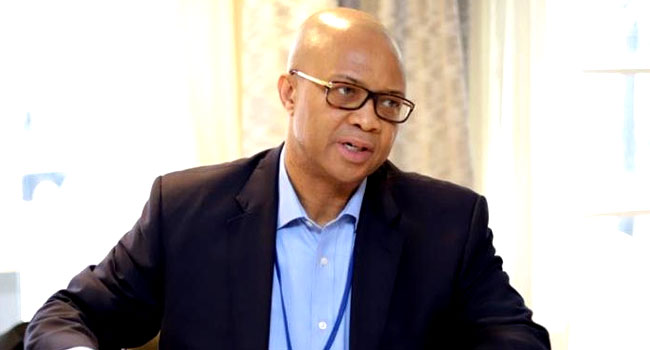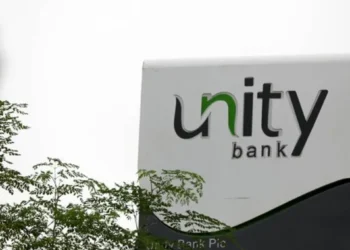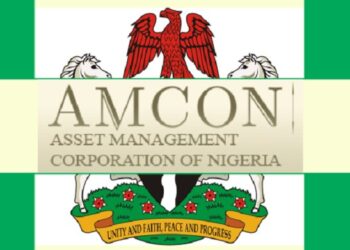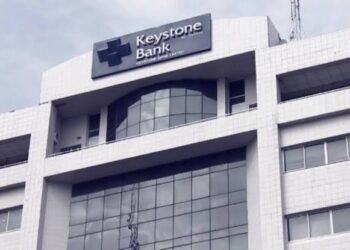The Director General of the Budget office of Nigeria, Ben Akabueze suggested that the Asset Management Corporation of Nigeria (AMCON) should increase the amount of statutory contribution made by banks.
He said this when responding to questions on several aspects of the Nigerian economy on Arise TV on Tuesday, September 6th, 2022.
He was asked about his opinion on the state of AMCON, which reports suggest has only recovered N1.6 trillion through the Economic and Financial Crimes Commission (EFCC) between 2017 and July 5, 2021, out of over N5 trillion in toxic assets.
What Akabueze is saying
The director general of the budget office responded to claims that AMCON toxic assets are not reduced efficiently after several years after it was set up.
Akabueze responded emphatically suggesting that the matter was of grave concern and that more drastic measures such as getting banks to pay more should be explored.
- “There are debates and discussions over whether AMCON overpaid for the assets or not given how toxic they were. Yes, this is a matter of serious concern to us on the fiscal side, because if AMCON does not work down these assets and pay down the amount that was invested in securing the assets that burden will eventually devolve on the treasury and become part of the national debt that all of us have to pay.”
He then expressed concern over the model put in place by the act setting up AMCON that requires banks to set aside funds to repay the loans.
- “By the design, the resources to work down the obligations would partly come from contributions from the bank and I think that AMCON should at this point consider raising the level of the contributions that the banks make, even on a risk asset-weighted basis, so that banks that contributed significantly to the pool of assets….”
Akabueze also attacked bank profits, suggesting that they should be made to pay more in the light of the massive profits banks are declaring.
- “Banks that are making mouth-watering profits nowadays should be made to contribute more significantly to working down these assets. It does not look equitable that the banks will dump their toxic assets on AMCON which will now become a public burden and now they are declaring great profits and declaring dividends for their shareholders.”
AMCON Levy
Banks are required to contribute an equivalent of 0.5% of their total assets plus 0.5% of all contingent assets as of the preceding year-end to AMCON sinking fund in line with existing guidelines. This contribution is for a period of 10 years from 2013, it is non-refundable and does not represent any ownership interest.
- Banks were initially mandated to contribute 0.3% of total assets to the sinking fund. This was further increased to 0.5% of total assets in 2013 (and 0.33% of contingent liabilities).
- Nwabueze’s comment suggests the government maybe looking in the direction of getting banks to pay more levies or assume greater responsibility for how the N5 trillion debt is repaid.
- Just last year, Senator Uba Sani, Chairman, of the Senate Committee on Banking, Insurance and other Financial Institutions stated that high net worth Nigerians are frustrating debt recovery operations of the Asset Management Corporation of Nigeria (AMCON) valued at N4.4 trillion.
- Nairametrcis research reveals over N140 billion was collected in the first quarter of this year alone from 13 of the quoted banks.
About AMCON
- AMCON was established in 2010 to buy the Non-Performing Loans (NPLs) of Nigerian banks to stabilise the banking system and is currently being funded by a combination of loan recoveries, contributions from the Central Bank of Nigeria (CBN), sale of assets pledged, and a sinking fund levied on the banks.
- The rising bad loans and the need to save the banking industry from imminent collapse prompted the federal government to set up AMCON in 2010 with a 10-year mandate. The AMCON Act 2019 (Amended) grants the corporation more powers to recover bad debts from obligors.






















